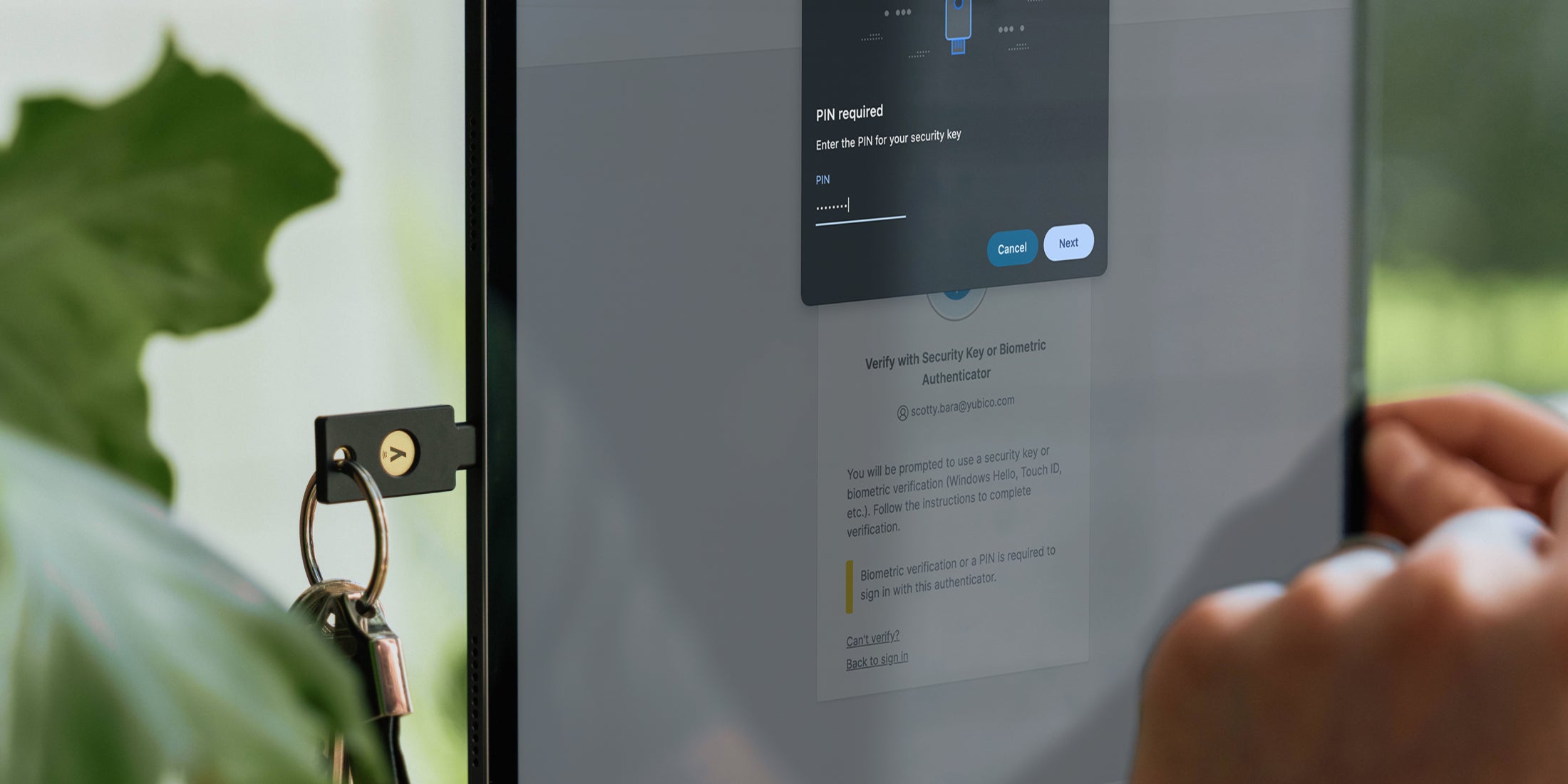Our partner, Okta, is anticipating that strong authentication adoption in 2016 on its cloud identity platform will eclipse the 40% increase it recorded in 2015. We salute Okta’s hard work and innovation now that it has officially released YubiKey support.
Okta landed on YubiKeys to solve specific accessibility issues for its customers, specifically those who don’t have access or privileges to use mobile devices at work.
This is one important distinction that Yubico identifies when comparing the YubiKey to authentication via a mobile phone. Other significant distinctions of the YubiKey include better security, cost savings, efficiency and durability.
Mobile devices rely on downloaded authentication software, which can be vulnerable to malware. A device that is not connected to the internet always offers superior security. YubiKeys present cost savings over mobile devices by allowing multiple backup devices as opposed to dependency on a single phone. YubiKey authentication is faster because the need to access an app or type in codes is eliminated. And the durable YubiKey works without the need for batteries.
The YubiKey, however, also satisfies pure mobile use cases with support for Near Field Communication (NFC), as well as standards such as U2F over NFC and OTP.
The YubiKey works with Android, Windows, and other devices by just tapping it against the NFC-enabled device. Services that have made support for the NFC-enabled YubiKey include password manager Lastpass (OTP) and GitHub (U2F).
This versatility distinguishes the YubiKey from other hard tokens, and allows for a single YubiKey to support multiple protocols and use cases. This means flexibility for companies wanting to increase security within their enterprise.
From an enterprise and service provider perspective, strong authentication isn’t a one- size-fits-all. There are many use cases and each demands a specific level of security and access. That’s why a YubiKey doesn’t rely on just one protocol or even focus solely on authentication. YubiKey functions such as touch-to-sign provide data integrity and security options beyond pure authentication.
Yubico’s work with Okta exposes just one of the YubiKey’s functions. In fact, LinkedIn was one Okta customer that rolled out the YubiKey using Yubico OTP as a second-factor.
Learn more about YubiKey’s versatility, and our partnership with Okta.





